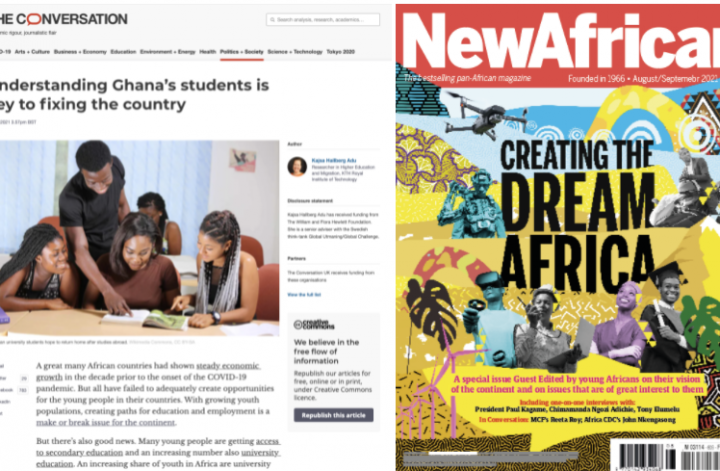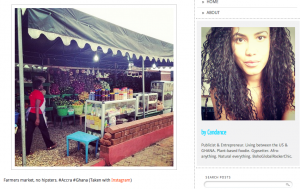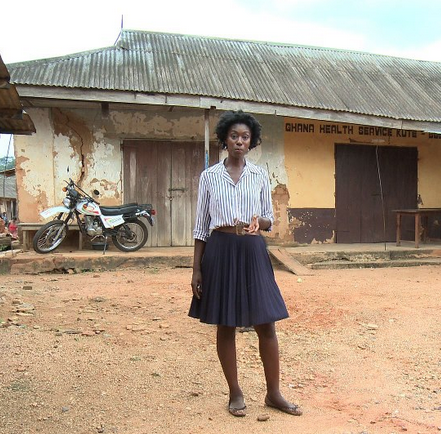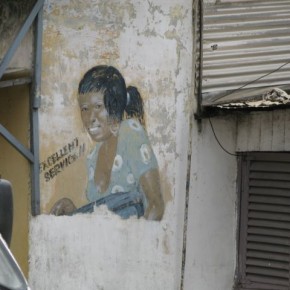6.01 I wake up, shower and get dressed.
6.20 The lights go off, but I am ok because I had already prepared for work! I make coffee on the gas stove (only crazy folks rely on electricity for cooking!)
7.00 I leave with my coffee cup and some sandwiches in my car which I will eat in the traffic jam I am foreseeing closer to Accra.
8.04 I get stopped at a police barrier to show my licence. As the policeman is holding it, he tells me that he once wanted to marry a white lady. Any white lady – blonde, brown hair, even red! he says and glances above my eyes. Now he is married to a Ghanaian. He asks when I will be back before he waves me off.
8.15 I fill my car with petrol at the regular gas station and is greeted with a smile, “Hi Mrs Adu!”
8.27 I pick up a nurse who is going in the same direction on the gravel road that is the last leg of my trip. She proceeds to tell me her life story.
8.34 I drop the nurse off (“God bless you!” she says as she steps out onto the dusty road) and arrive at work (yes, my commute is 1,5 hours)
9.25 I still haven’t gotten Internet to work at work and I open the window as the AC also does not work. Light off?
10.00 I go to my first class of the day. We talk about the election case currently in the Supreme Court (can there be any winners?) and discuss President Mahama’s autobiography and we conclude we can learn much from history.
11.45 I have office hours and console some students who did not do well in their recent exam. I also have a short meeting with my new coworker.
12.45 I go for lunch. I have fried rice, chicken and yam balls. The side order of avocado is today twice as expensive as yesterday.
13.30 My next class. ACs still not working, I wipe my forehead many times as a panel presentation and discussions proceed. A wild debate breaks out on weather or not Achimota school is an “elite” school.
16.00 The secondary school girl I sponsor has still not come. She said she’d come an hour ago. I leave some money with the receptionist and take off.
16.25 I stop on the roadside to buy fruits. I buy a bag of sun warm mangoes and a bag of avocados for 10 GHC (5 USD)
17.40 I come home, but immediately leave again to buy “sachet water”, 500ml drinking water in plastic bags packed in bags of 30. I buy four packs at 1.50 GHC each (75 US cents).
17.45 I return a call to a colleague, she is standing there with a school girl who is looking for me…?
18.00 Electricity is still not back.
18.20 Electricity comes back! I make dinner and eat.
19.00 I play with my daughter and call my parents in Sweden on Skype. We discuss the upcoming summer holiday.
20.30 After having tried to write this blog post two times, my daughter finally is tired enough to let me.
20.52 I watch the latest episode of Girls with our nanny.
21.20 I go to bed. I might read a few minutes before I fall a sleep.
This is a very ordinary day for me. It has electricity, water and infrastructure challenges, but also human warmth (sometimes a tad too much for my taste), good food and surprises. Always surprises.






